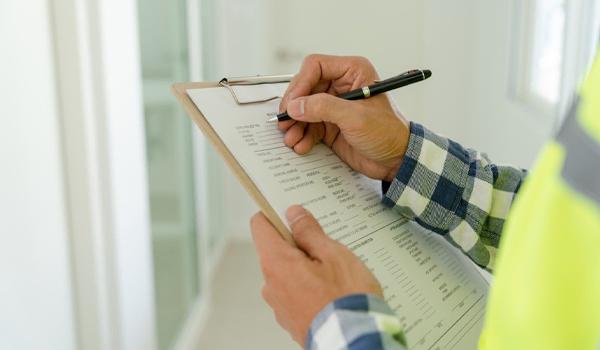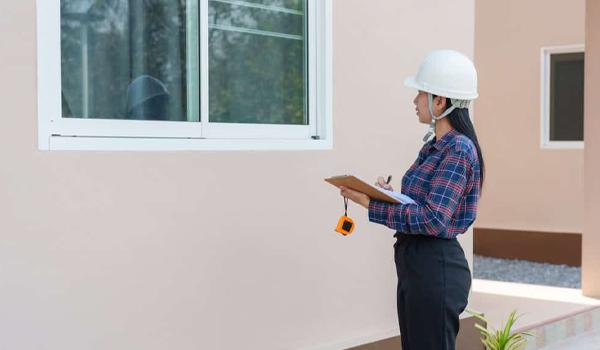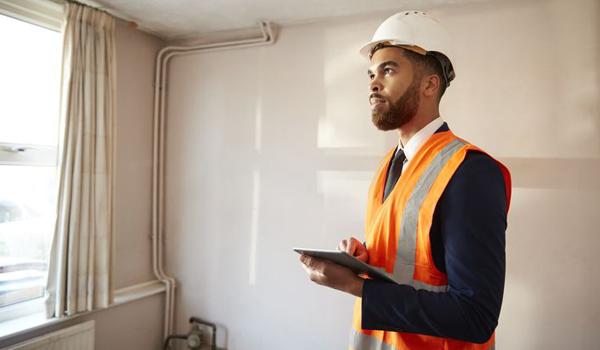Wall Inspection: How to Identify Structural and Safety Issues

Have you ever noticed something odd with the walls inside or outside your house that got you worried a bit? Well, you might need a wall inspection if that is the case. Any cracks, bulges, dampness, etc., are signs that there is probably something wrong with that wall that needs to be addressed as soon as possible. Today, we delve into the details of a wall inspection and talk about what it is, what it includes, how much it costs, and more.
What Is a Wall Inspection?
Wall inspection is when a professional comes to the site and examines all the walls in the property. Whether they are made of brick, concrete, stone, wood, or drywall, they check for any signs that tell them there is a problem or a safety risk.
When Should You Get a Wall Inspection?
There are certain times when experts say it is a good idea or even crucial to undertake a wall inspection:
1. Before Buying or Selling Your House
By doing a wall inspection before selling your house to another person or family, you save them the hassle of costly repairs and discomforts in the future, and of course, doing an inspection before buying a house gives you certainty and peace of mind before settling in.
2. Before Major Repairs or Renovations
If you intend to make structural changes or repairs, it is very important to hire someone to make an inspection first so that there won’t be any major issues during construction.
3. Every Few Years
Wall inspection every few years is especially recommended for old homes or buildings where there is more of a chance of cracks or water leaks from pipes or other things of this nature.
4. After Severe Natural Events
After floods, strong earthquakes, and heavy storms, we suggest doing a wall inspection to ensure there hasn’t been any damage done to the walls and foundations of the property.
5. When Noticing Certain Signs
When you see things like cracks, water stains, leanings, loose bricks or stones, etc., you need to call an inspector to have a look at it.
6. Regularly for Retaining Walls
All retaining walls in general need to be inspected on a regular basis since there is the risk of collapse due to pressure from the soil, aggravated by rain and snow.
You can read about Ceiling Inspection as well in our blog if you are interested or have noticed an issue with the ceiling.
What Does a Wall Inspection Include?
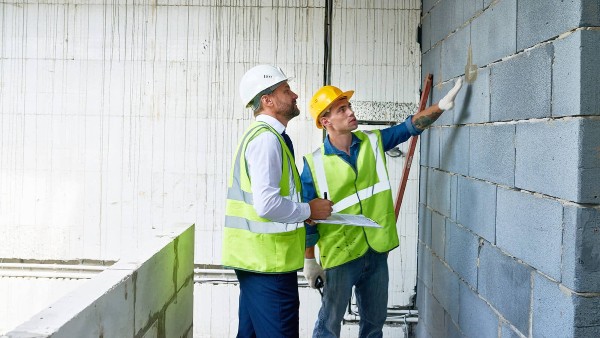
A wall inspection is there to make sure all the walls are safe and stable without any major issues. Here are things that are checked during a normal wall inspection:
- Structural Integrity
- Checking the walls for cracks, bulges, leaning, or separation from adjoining walls.
- Also checking to see if there are any signs that indicate foundation movement.
- Water Damage
- Seeing if there are any water stains, leaks, or damp spots.
- Looking for mold and mildew.
- Checking out the conditions of drainage and waterproofing around exterior walls.
- Safety Risks
- Making sure that retaining walls are stable and fixed in their place and not at risk of collapsing.
- Looking for loose bricks, stones, or tiles.
- Examining the Materials
- Inspecting bricks, stone, concrete, or wood for deterioration.
- Looking at the reinforcement steel and metal supports to see if there is corrosion or rust.
- Looking for termite or insect damage in wooden walls.
- Checking the Surface
- Looking for certain surface signs that indicate damage, such as peeling paint, loose plaster, spalling concrete, or crumbling mortar.
Wall Inspection Cost
So, before we give you the approximate numbers, you should know that there are two types of inspections: a standard wall inspection and a specialized wall inspection that requires a structural engineer who will do an in-depth analysis (needed for major renovations), which costs much more than a standard inspection.
1. Standard Home Inspection (Includes Wall Visual Check)
This is a general inspection for potential homebuyers or sellers in Canada and includes a visual assessment of the walls for obvious signs of damage. Here are the costs according to websites such as winrightlaw.com and xpertsource.com:
2. Specialized Home Inspection
And here is the structural wall inspection cost in Canada:
Benefits of Regular Wall Inspections
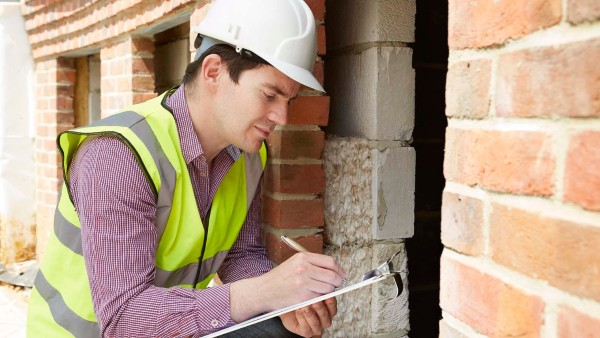
There are quite a few reasons you would want to undertake regular wall inspections:
- Finding out and fixing small problems like small cracks, leaks, or damp patches early on can save you a lot of hassle and money in the future.
- It is a good thing to make sure all the walls inside and outside the house are safe and stable and do not pose any potential harm to the people inside. That is especially true for old homes and retaining walls.
- By identifying leaks, mold, or poor drainage, you can prevent health hazards like mold growth and structural weakening over time.
- Wall inspections can reveal gaps, poor insulation, or air leaks in walls. Fixing them helps reduce heating and cooling costs.
There is also our other article that tells you all about HVAC Inspection if you are having problems with the heating or cooling of your house.
- By regularly taking care of the property, its value can stay high, and buyers will be more inclined to purchase the house if it simply looks and feels good and is structurally sound.
FAQs
1. How do I know if my wall crack is serious?
Small hairline cracks are usually fine. Big, widening, diagonal, or horizontal cracks can mean structural issues.
2. Does a home inspection include a wall inspection?
Yes, inspectors check walls for visual signs like cracks, moisture, and damage, but they don’t do in-depth examinations.
You can find out about Home Inspection Cost in our blog. Also, in case you live in Ontario, Houmse has got you covered with professional-grade home inspections.
3. Can I inspect walls myself?
Yes, you can easily spot obvious issues such as cracks, damp patches, or peeling paint yourself, but you need an expert to check for structural integrity.
4. How often should I have walls inspected?
Every 4 to 8 years, more often if the house is very old. Also, after extreme natural events, before buying/selling, and when you notice serious damage on a wall.
Final Thoughts: Keep Your Walls Strong and Safe
So, do we recommend wall inspection for homes? The short answer is, of course, an inspection every few years is a logical expenditure in our opinion, especially for old homes. On the other hand, there are times when a home wall inspection is necessary, for example, before doing major renovations. We have gone into much further detail regarding these questions in our article, so it is best to read the whole thing and find out all you need to know when it comes to wall inspections.
- In this post:
- What Is a Wall Inspection?
- When Should You Get a Wall Inspection?
- What Does a Wall Inspection Include?
- Wall Inspection Cost
- Benefits of Regular Wall Inspections
- FAQs
- Final Thoughts: Keep Your Walls Strong and Safe

